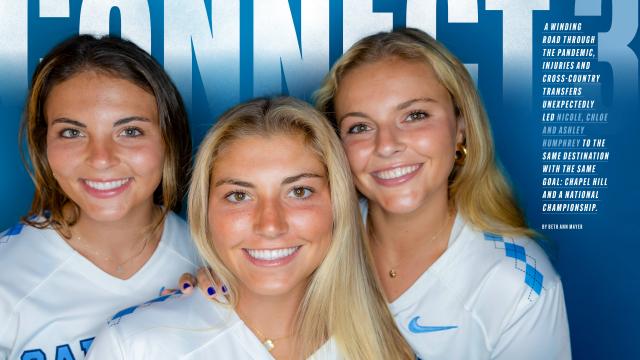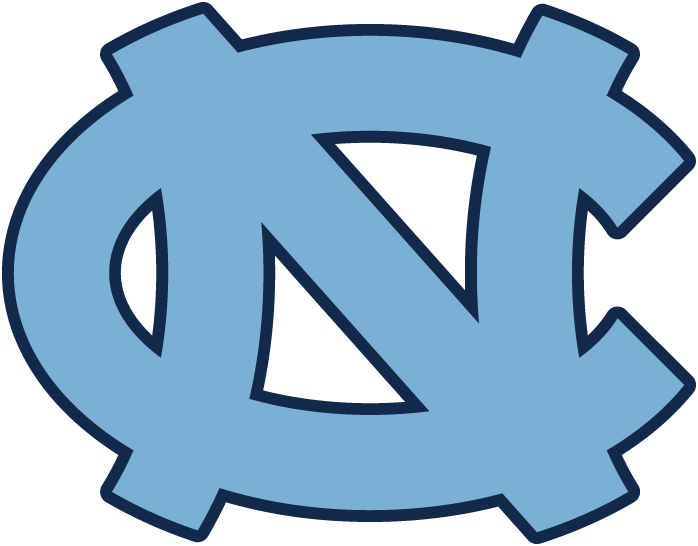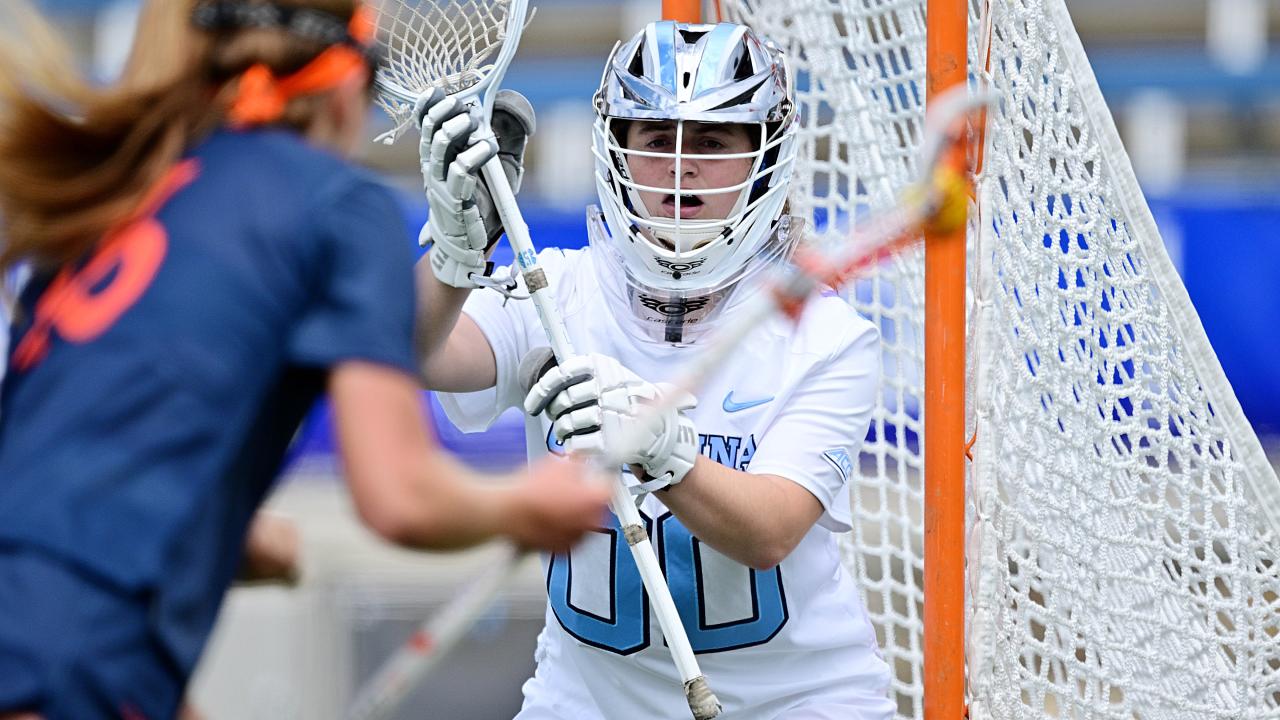
Cancer Put Sports, Life in Perspective for UNC Goalie Alecia Nicholas
Alecia Nicholas calls the months leading up to the 2024 season “bad news bears.” In February, North Carolina announced it would play the 2023-24 season without Marissa White, Brooklyn Walker-Welch and star incoming freshman recruit Chloe Humphrey.
“It was one of those things where we couldn’t give up,” Nicholas said. “We just had to keep putting one foot in front of the other.”
Off the field, Nicholas had been doing that for months. That fall, she learned she had thyroid cancer. Her announcement on Instagram that she planned to play the 2024 season — which she did — was a narrative that in any other season would have dominated broadcasts.
But this wasn’t any other season for the Tar Heels. Less than a month later, the injury announcement became the prevailing narrative for the Heels, who experienced a “down” year with a 10-7 record and a first-round exit in the NCAA tournament.
Nicholas played in every game, starting 16. Cancer isn’t curable, but for all intents and purposes, she is now cancer-free. She has also been nominated for Best Comeback in USA Lacrosse Magazine’s Best of Lacrosse campaign. Voting is open and closes Sunday, Dec. 15.
Nicholas came back from a cancer diagnosis and treatment in February, but her health concerns began before the 2023 season. In late fall 2022, she started noticing her voice was raspier and she was more tired.
“I could fall asleep wherever, whenever,” Nicholas said.
That continued throughout 2023 — and summer break didn’t help. That fall, the team did a run. Nicholas is the first to admit she isn’t the team’s fastest player. (“I’m always bottom two,” she said.) But this one felt different.
“I was more exhausted,” Nicholas said. “My legs weren’t moving. I could barely run. I ended up throwing up, which I had never done before.”
Nicholas’ mother had hypothyroidism, and the symptoms she was experiencing were similar. Maybe her iron was low? Instead of playing a guessing game, Nicholas decided it was time to see a doctor. She made an appointment and quickly brought up her family history of hypothyroidism.
“My doctor was like, ‘OK, let me feel your thyroid,” and then she goes, ‘That’s not normal,’” Nicholas said. “I had a rather large bump, and it was hard. She told me that’s typically not how a thyroid feels.”
Her bloodwork did not indicate hypothyroidism, so her care team ordered an ultrasound and biopsy. Nicholas had nodules on her thyroid. The good news? Her doctor said they were almost always benign. The concern? Most people in their 20s don’t have nodules in their thyroid. Her care team told her that it might be cancer.
“I just kind of went into shock,” Nicholas said.
And then, she came out of it.
“I did all my processing after that doctor’s appointment, and I just started crying,” Nicholas said.
Nicholas’ first call was to her parents, but she couldn’t get ahold of them. Her mind was racing. It didn’t help that she and her roommates had a favorite pastime: Watching Grey’s Anatomy. Before healthcare providers defaulted to warning patients against consulting Dr. Google, they often advised them not to watch too much TV.
And yet? “I had convinced myself I had cancer from watching a lot of Grey’s Anatomy,” Nicholas said.
Nicholas got UNC head coach Jenny Levy on the phone and presented her Shonda Rhimes-inspired theories. Levy tried to stay positive.
“She was like, ‘You’re thinking worst-case scenarios,’” Nicholas said.
And then, the worst-case scenario came true.
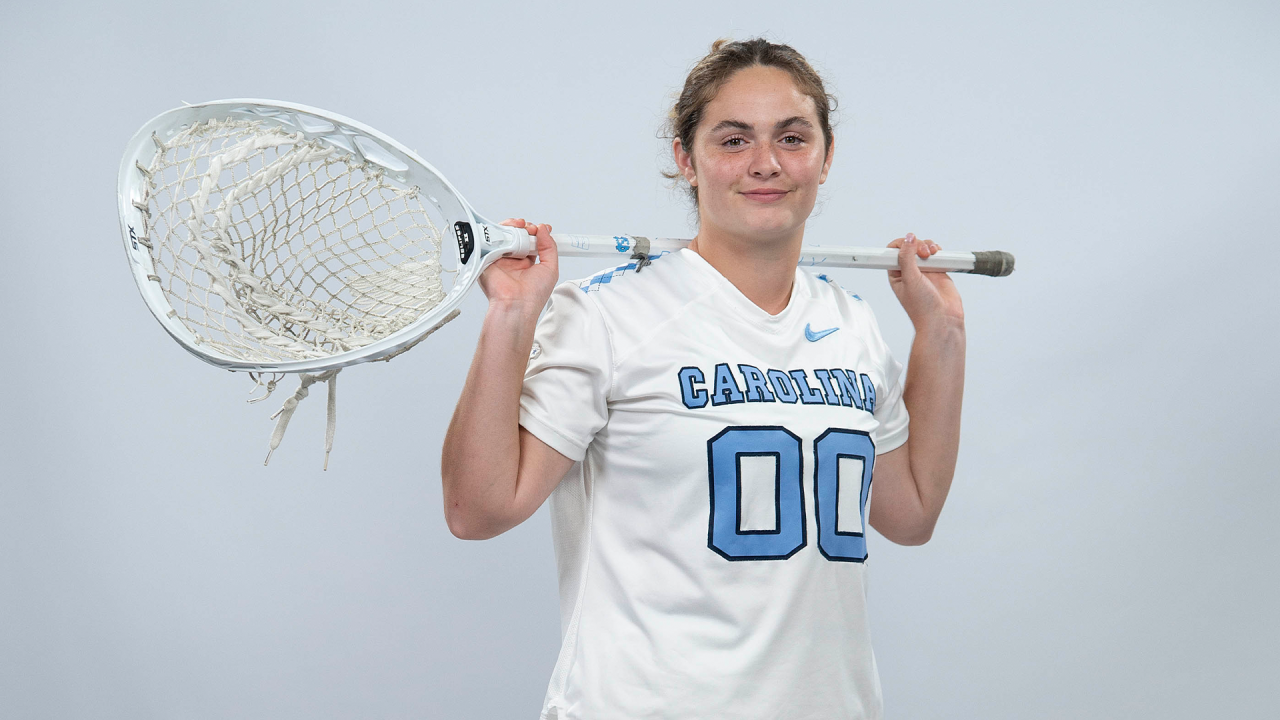
“I talked to Jenny, and she’s like, ‘You can’t get dark and scary. We’ve got to keep moving forward and thinking about the positive,’” Nicholas said. “Then, I was on the phone with my parents, crying and breaking down. It was very scary.”
Next came her roommates and then, naturally, ice cream.
“We sat around and joked about it,” Nicholas said.
Nicholas told the team the next day, along with her game plan — a strategy that included continuing to play. But the game plan went out the window during the team’s next scrimmage against Johns Hopkins.
She had been fighting fatigue for about a year now — what was the difference? The difference was that she had answers to why she felt off. The difference was that, even though she was told she had about a 99-percent chance of survival and was attending college in the Research Triangle (the Raleigh-Durham-Chapel Hill area of North Carolina), the “C” word is enough to shake anyone. The difference was that her parents were there, the first time Nicholas had seen them since joining a club no one signs up for willingly.
“That was probably one of my worst days,” Nicholas said. “I was so distracted. I couldn’t save a beach ball. I played less than I was expected to, and I was just sobbing. After the game, I said I was fine, but I clearly wasn’t.”
Levy pulled her parents aside. She didn’t want to talk about lacrosse or beach balls. She wanted to know what she could do to help and if it would be OK if she came to the pre-op. That ball was in Nicholas’ net.
“She said, ‘I would like to come to the pre-op,’” Nicholas said.
Nicholas wanted her there, so Levy stayed with her parents the entire time. That support still means the world to her.
Ultimately, Nicholas’ operation to remove her thyroid and several nodules went off without a hitch. She underwent radioactive iodine treatment.
After all that, Nicholas was able to play the 2024 season without cancer. But she entered the year with self-doubt.
“I was worried if I was ready or not,” Nicholas said. “Once we started playing … I just was happy to be a part of it.”
Happy, even though the season didn’t go according to plan by Tar Heel standards. But Nicholas — who said lacrosse was once her “whole life” — had a different mindset following a brush with cancer.
“This sounds a little dark, but it’s like, ‘If I don’t play, it’s not going to kill me,’” Nicholas said. “Sometimes, you need that perspective. We have a deep, talented team, and especially in a year where you have so much competition, if I don’t end up on the field or have my best day or someone is playing better than me, you know what? It’s not the end of the world. I’m more of a person than lacrosse.”
And she hopes her story transcends the game and lacrosse community, too.
“I hope there is hope that can be found in my experience,” Nicholas said. “You can have health issues and struggle and live your life, lean on your support system and get through it.”
One day, one step at a time.
“Sports teaches that mindset to get through it,” Nicholas said. “Every step that was taken wasn’t a question. It was just like, ‘This is the next step. I have to go to my doctor. I have to get surgery. I have to have radioactive iodine treatment. I have to eat my diet … and recover. It’s like playing sports and running. One step, one foot in front of the other. That’s all you can do.”
Nicholas still might not be the fastest runner, but she’s endured.
Beth Ann Mayer
Beth Ann Mayer is a Long Island-based writer. She joined USA Lacrosse in 2022 after freelancing for Inside Lacrosse for five years. She first began covering the game as a student at Syracuse. When she's not writing, you can find her wrangling her husband, two children and surplus of pets.
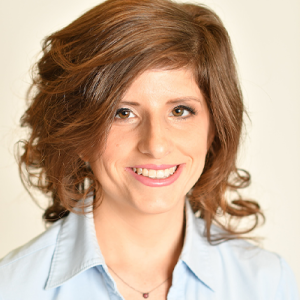
Related Articles

